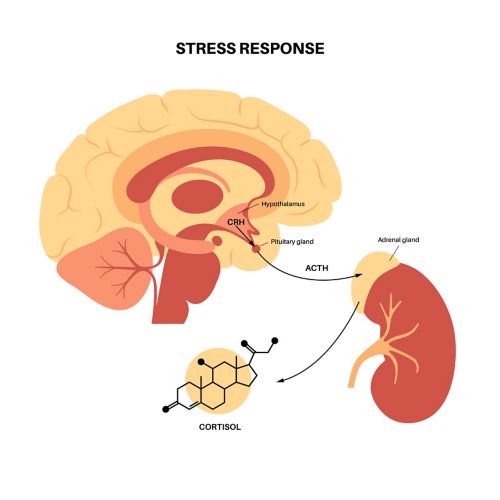Menu
Close
Back
Welcome to
Together is a new resource for anyone affected by pediatric cancer - patients and their parents, family members, and friends.
Learn More
The adrenal glands lie above the kidneys. The hormone ACTH from the pituitary signals the adrenal glands to release the hormone cortisol. Cortisol controls important body functions. This is known as the stress response.
Central adrenal insufficiency (also known as secondary adrenal insufficiency or ACTH deficiency) is a condition where the pituitary gland does not make enough of a hormone known as adrenocorticotropic hormone (ACTH). This may be due to:
When the pituitary gland releases ACTH, it causes the adrenal glands to make another hormone called cortisol. Cortisol helps the body respond to stress by:
Patients with central adrenal insufficiency do not make enough cortisol, so their bodies do not function normally.
The symptoms of central adrenal insufficiency may start slowly and develop over time, such as:
More severe symptoms can be a life-threatening emergency. This is known as an adrenal crisis. Symptoms of an adrenal crisis include:
Patients with central adrenal insufficiency do not make enough of the hormone cortisol. Care providers give the medicine hydrocortisone to replace the missing cortisol. Patients need to take hydrocortisone for the rest of their lives, as it does not cure the disease.
Your child will need to take the right amount of hydrocortisone. This amount can change over time. There are 3 different hydrocortisone dosing procedures, depending on what your child needs:
More severe symptoms of an adrenal crisis can be a life-threatening emergency. Symptoms of an adrenal crisis include:
If your child has the more severe symptoms of an adrenal crisis, see the information on how to give an Emergency Stress Dose for Adrenal Insufficiency and get medical help right away.
Tell your health care provider about your child’s use of hydrocortisone, especially before they get any anesthesia, sedation, procedure, or surgery. Your health care team should contact the St. Jude Endocrine Clinic to find out if your child needs a stress dose by IV.
Do not stop this medicine. If your child suddenly stops taking hydrocortisone, it can lead to an adrenal crisis.
Hydrocortisone (Cortef®) is available as 5-mg, 10-mg, and 20-mg white tablets. Your child can take hydrocortisone with or without food. It is also available as a liquid you can inject into a muscle in an emergency. Always follow the instructions given by your care team.
Give the maintenance dose that your care provider prescribes.
The maintenance dose mimics the amount of cortisol normally made by the body. Give the prescribed strength of tablet(s) of the hydrocortisone maintenance dose as follows:
| Time of Day | Number of Tablet (s) |
|---|---|
The body makes more cortisol during illness or injury. Your child needs higher doses of hydrocortisone to mimic what the body produces during these stressful times. Give stress dosing for these symptoms:
Give the prescribed stress dose of hydrocortisone every 8 hours.
Stress doses of hydrocortisone can hide a fever. After having a fever, your child needs a medical exam to check for an infection and get treatment. Do not give stress doses for more than 3 days without seeing your health care provider.
For any medical procedure, especially those using sedation or anesthesia, remind your care provider that you take hydrocortisone. Your child may need stress dosing before, during, or after the procedure.
The care provider should contact the St. Jude endocrinologist on-call to discuss whether your child needs stress dosing and the correct dose.
—
Reviewed: August 2023